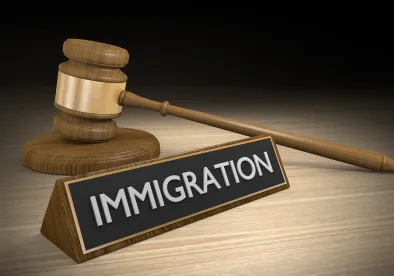The diplomatic cable instructs consulates on how to interpret the US Supreme Court’s direction to enforce the restriction only against foreign nationals who lack a “bona fide relationship with a person or entity in the United States.”
This Immigration Alert serves as an addendum to our prior summary of the Supreme Court decision partially granting the government’s request to stay enforcement of two preliminary injunctions that temporarily halted enforcement of Executive Order (EO) No. 13780. As a result of this decision, foreign nationals from six countries (Libya, Somalia, Sudan, Syria, Iran, and Yemen) who cannot show bona fide ties to the United States may be denied visas or entry for 90 days starting Thursday, June 29 at 8:00 p.m. EDT.
The communication from the US Secretary of State’s office enumerates the following situations where the EO’s travel restrictions will not apply:
-
When the applicant has a close familial relationship in the United States, which is defined as a parent (including parent-in-law), spouse, fiancé, child, adult son or daughter, son-in-law, daughter-in-law, or sibling, whether whole or half. This includes step relationships, but does not include grandparents, grandchildren, aunts, uncles, nieces, nephews, cousins, brothers-in-law and sisters-in-law, or any other “extended” family members.
-
When the applicant has a formal, documented relationship with an entity formed in the ordinary course, rather than for the purpose of evading the EO. This includes established eligibility for a nonimmigrant visa in any classification other than a B, C-1, D, I, or K, as a bona fide relationship to a person or entity is inherent in the visa classification.
-
When there are eligible derivative family members of any exempt applicant.
-
When the applicant has established eligibility for an immigrant visa in the immediate relative, family-based, or employment-based classification (other than certain self-petitioning and special immigrant applicants).
-
When the applicant is traveling on an A-1, A-2, NATO-1 through NATO-6, C-2 for travel to the United Nations, C-3, G-1, G-2, G-3, or G-4 visa, or a diplomatic-type visa of any classification.
-
When the applicant has been granted asylum, is a refugee who has already been admitted to the United States (including derivative follow-to-join refugees and asylees), or is an individual who has been granted withholding of removal, advance parole, or protection under the Convention Against Torture.
Applicants admitted or paroled into the United States on or after the date of the Supreme Court decision are also exempted, as are those currently in the United States who can present a visa with a validity period that includes either January 27, 2017 (the day the EO was signed) or June 29, 2017. Any document other than a visa, such as an advance parole document, valid on or after June 29 will also exempt the holder.
As described in the prior alert, any lawful permanent resident or dual foreign national of one of the six named countries who can present a valid passport from a country not on the list is not impacted by the EO. The EO also permits consular officers to grant case-by-case waivers to otherwise affected applicants who can demonstrate that being denied entry during the 90-day period would cause undue hardship, that entry would not pose a threat to national security, and that their admission would be in the national interest.




 />i
/>i

